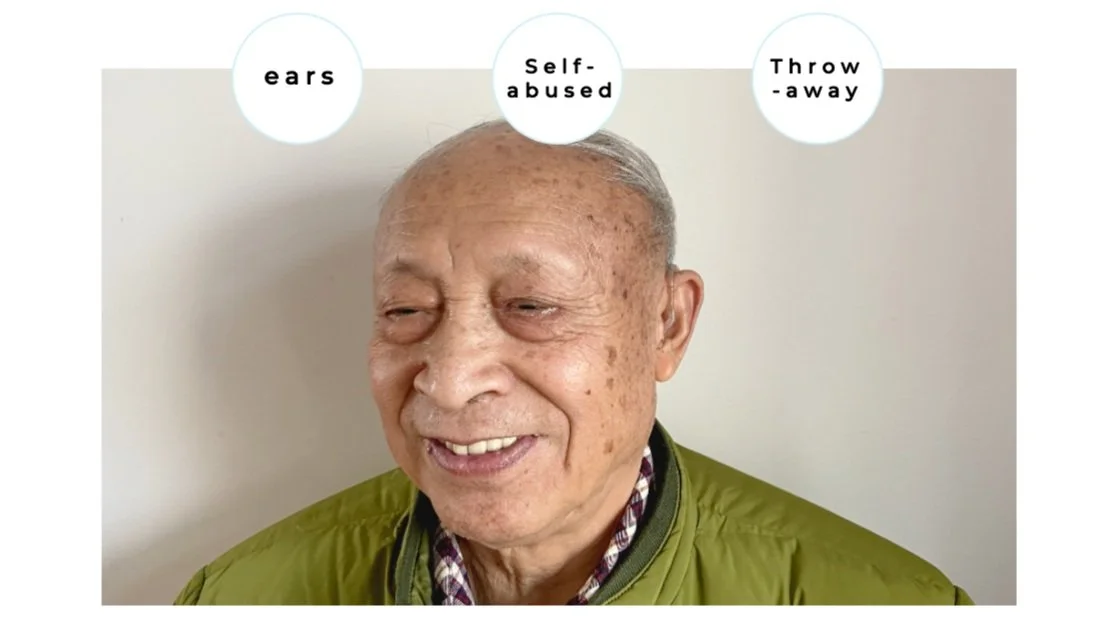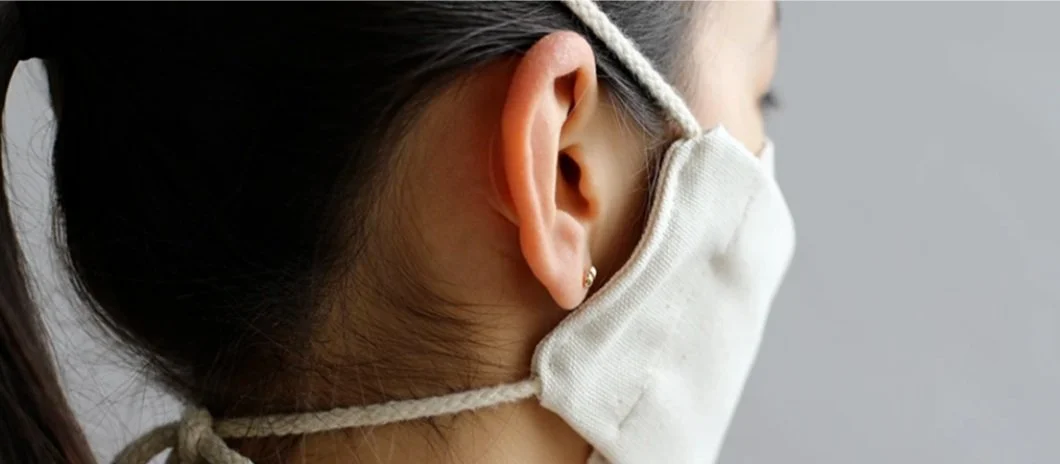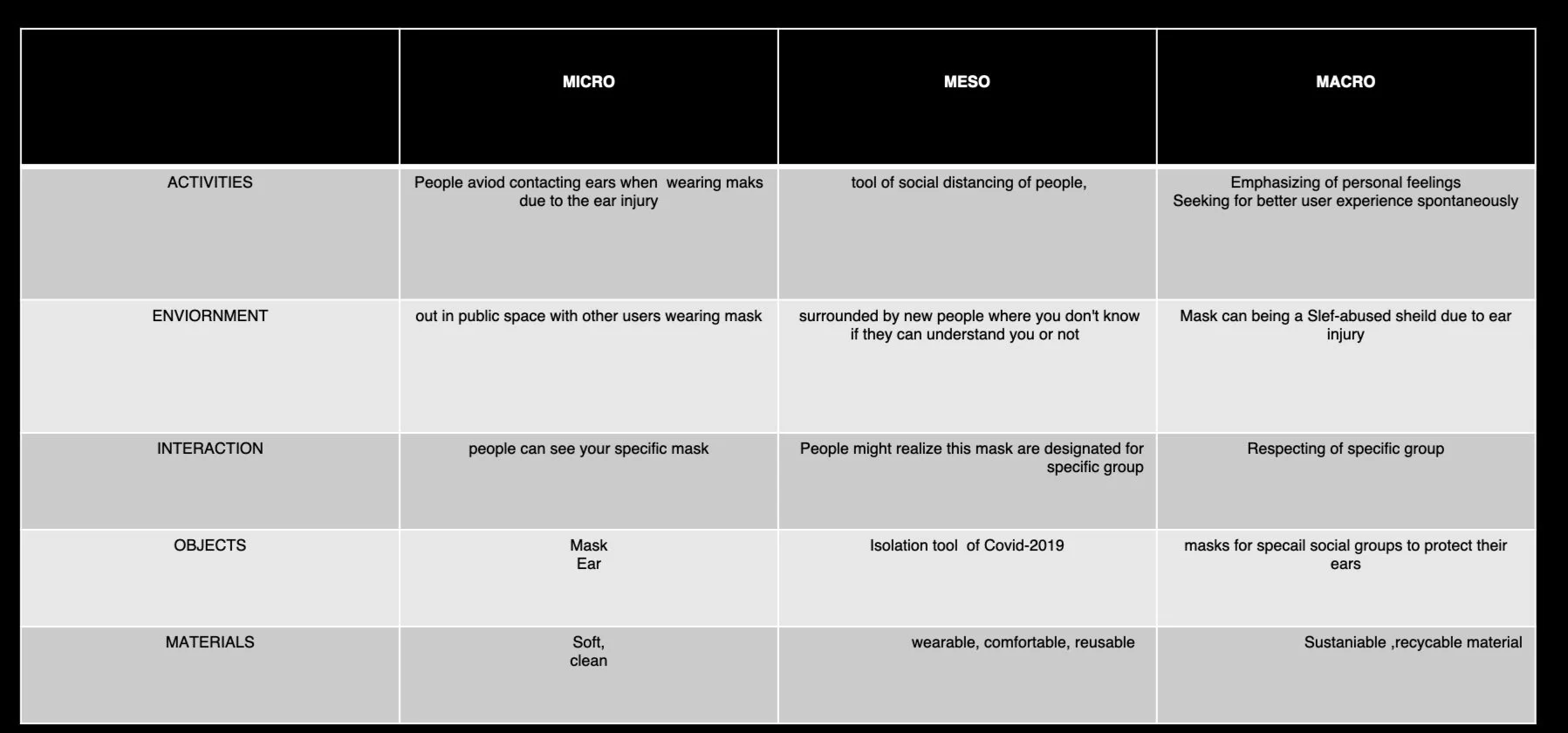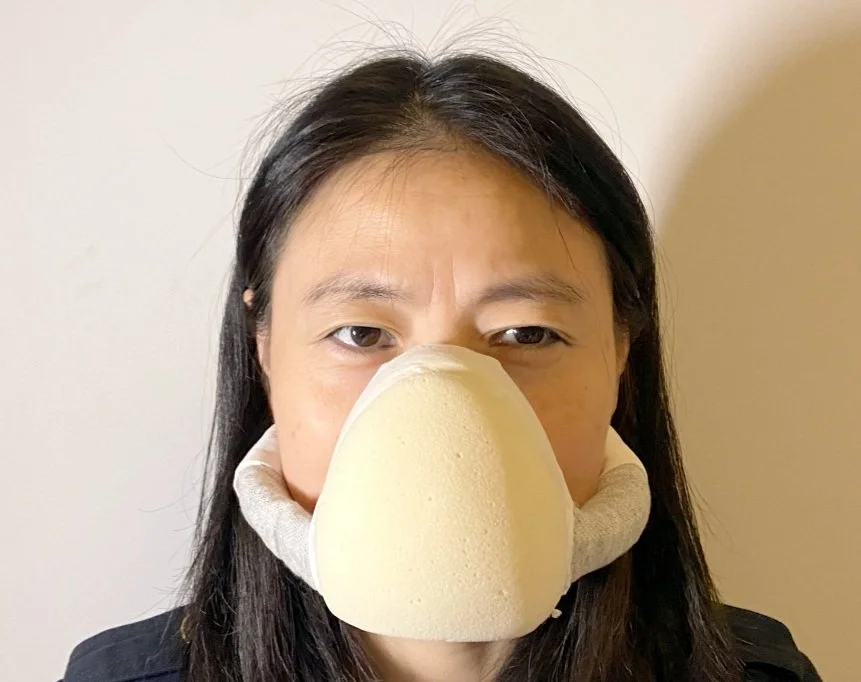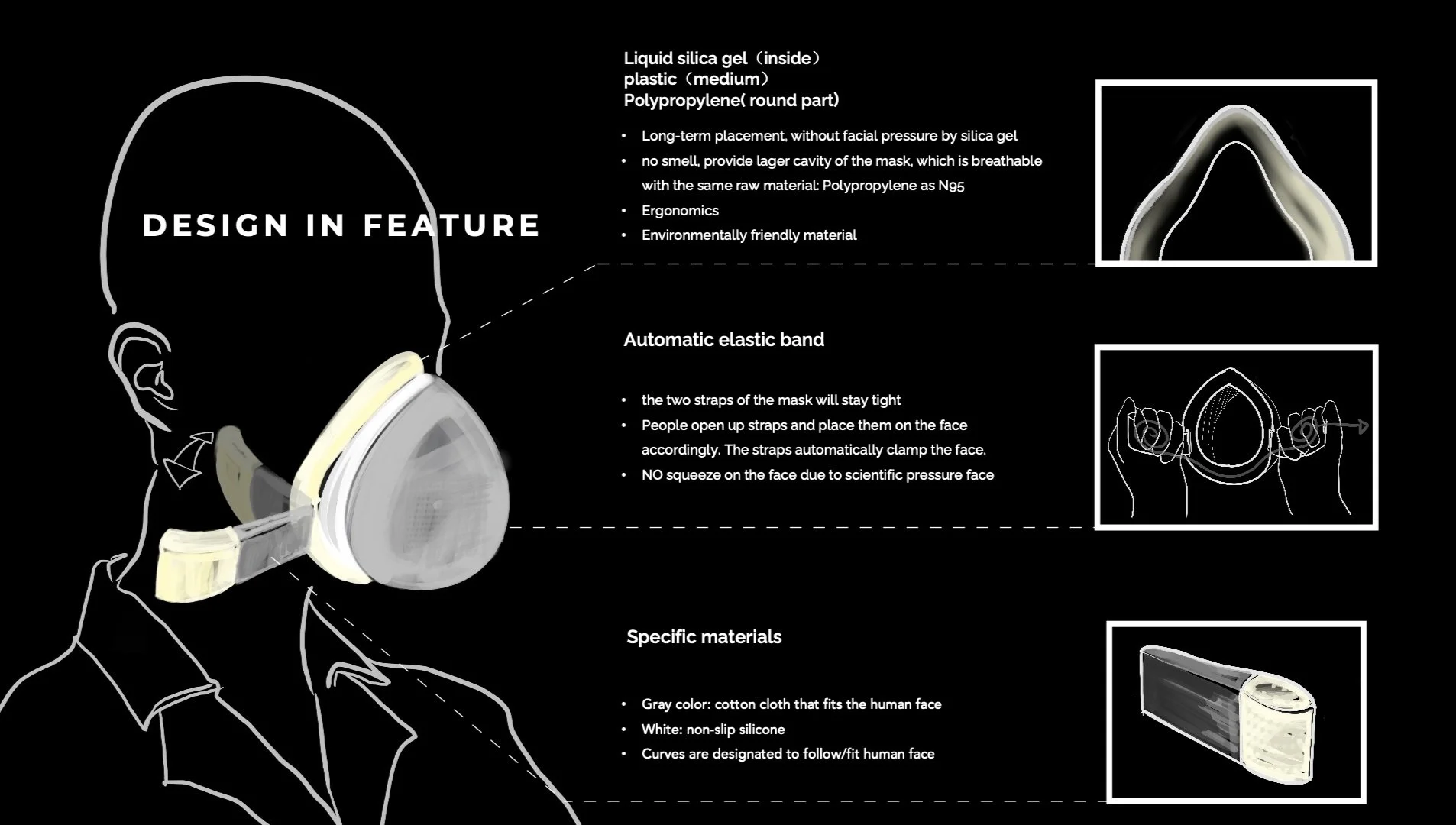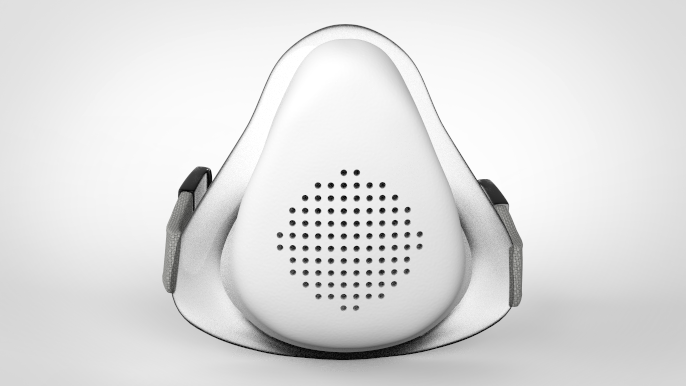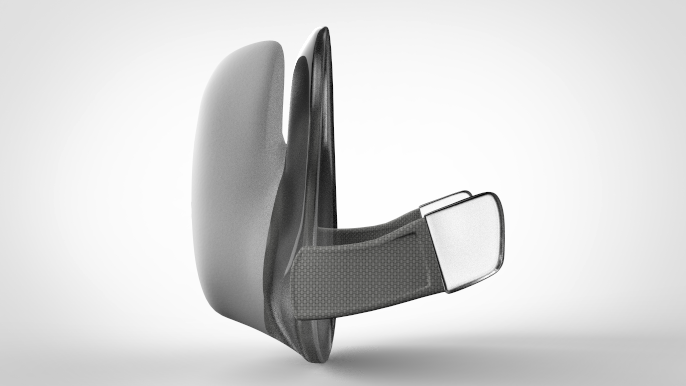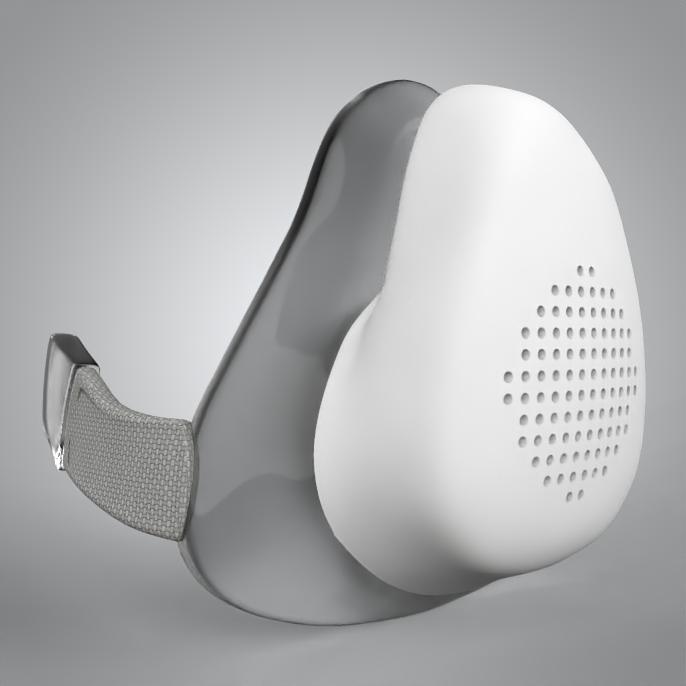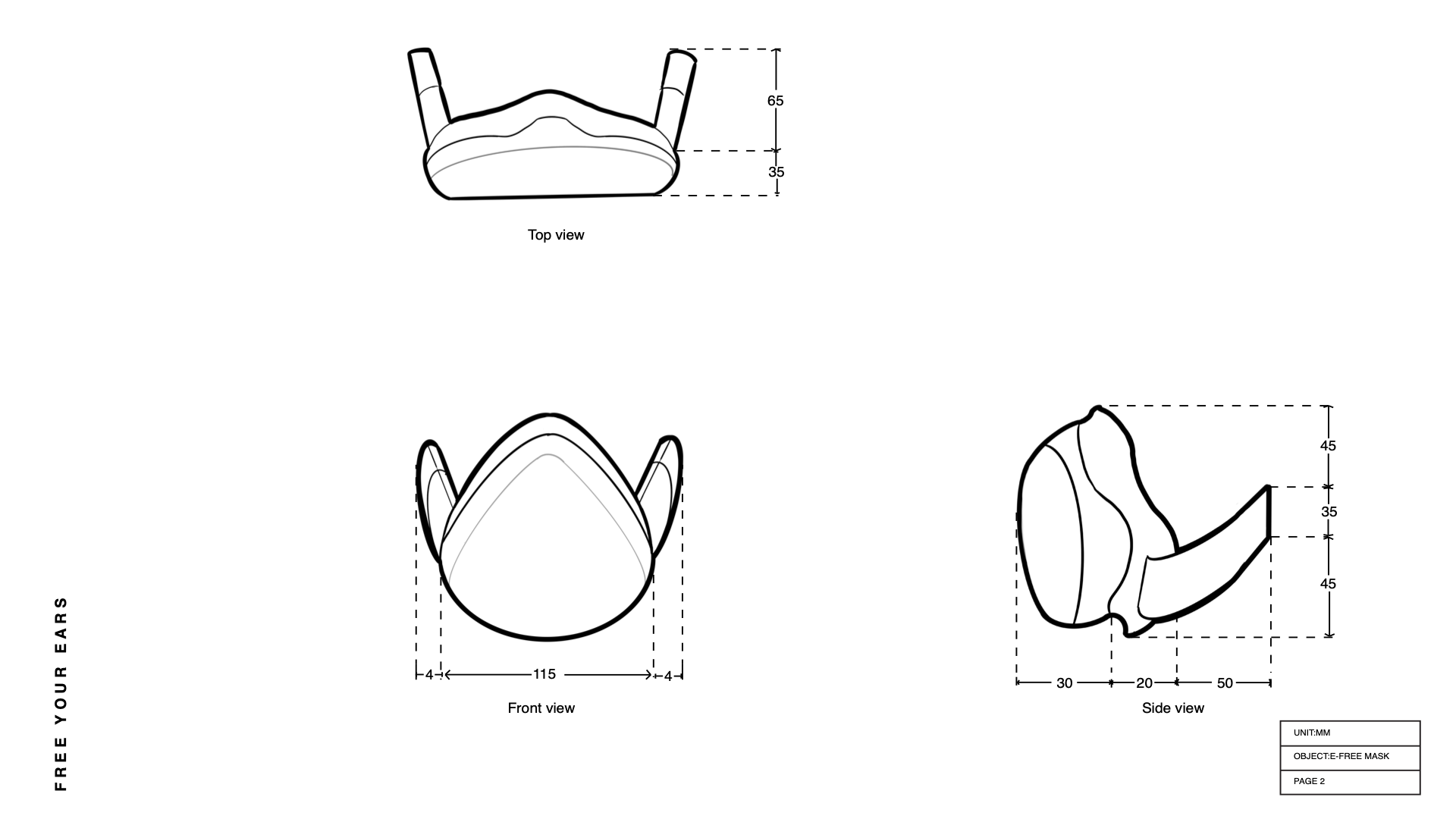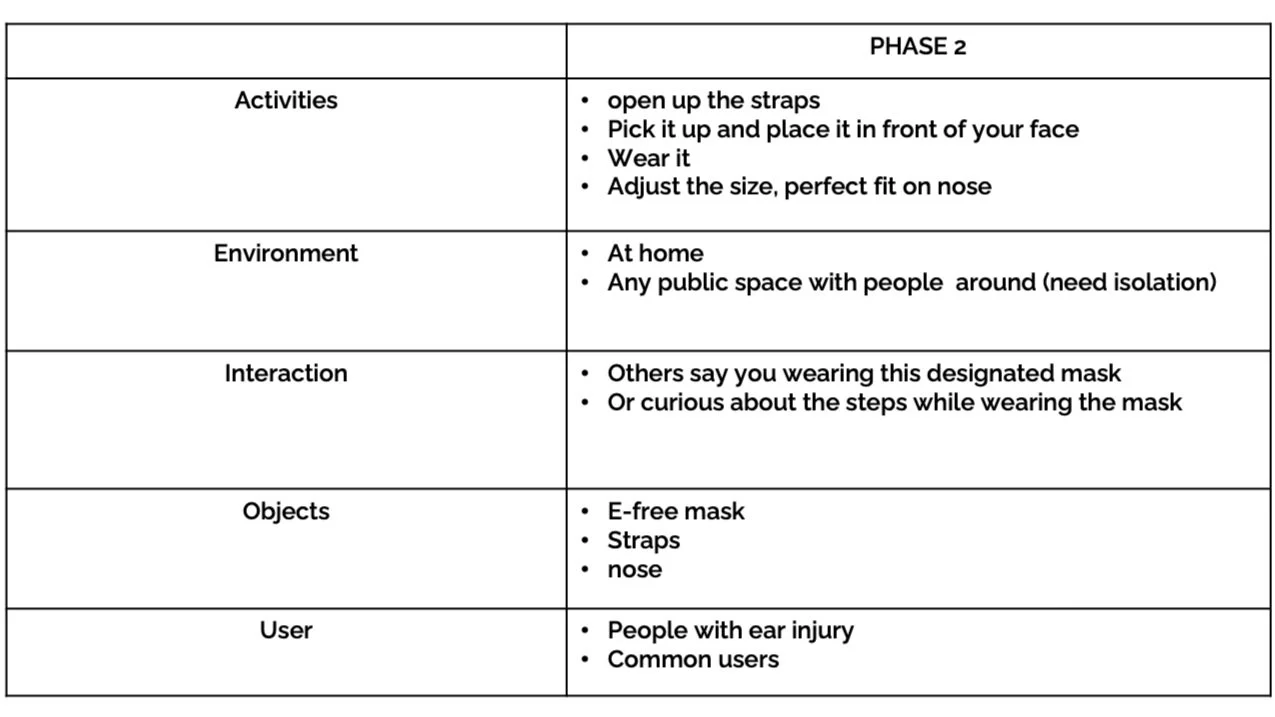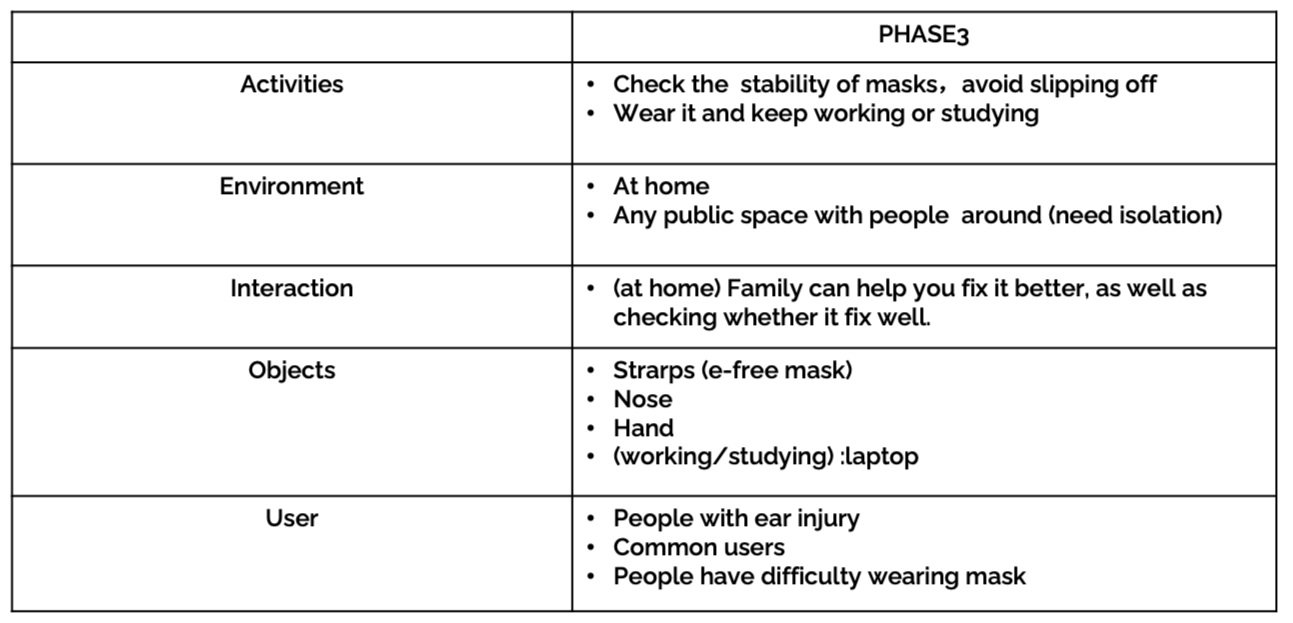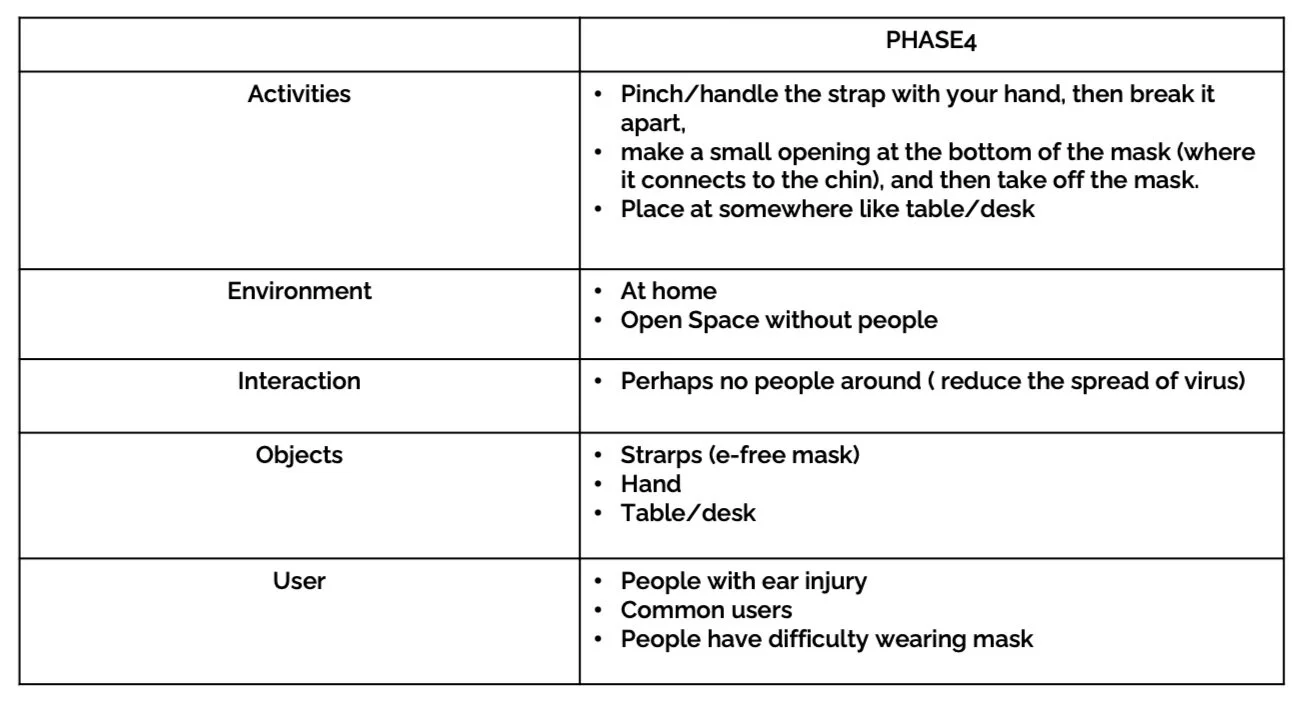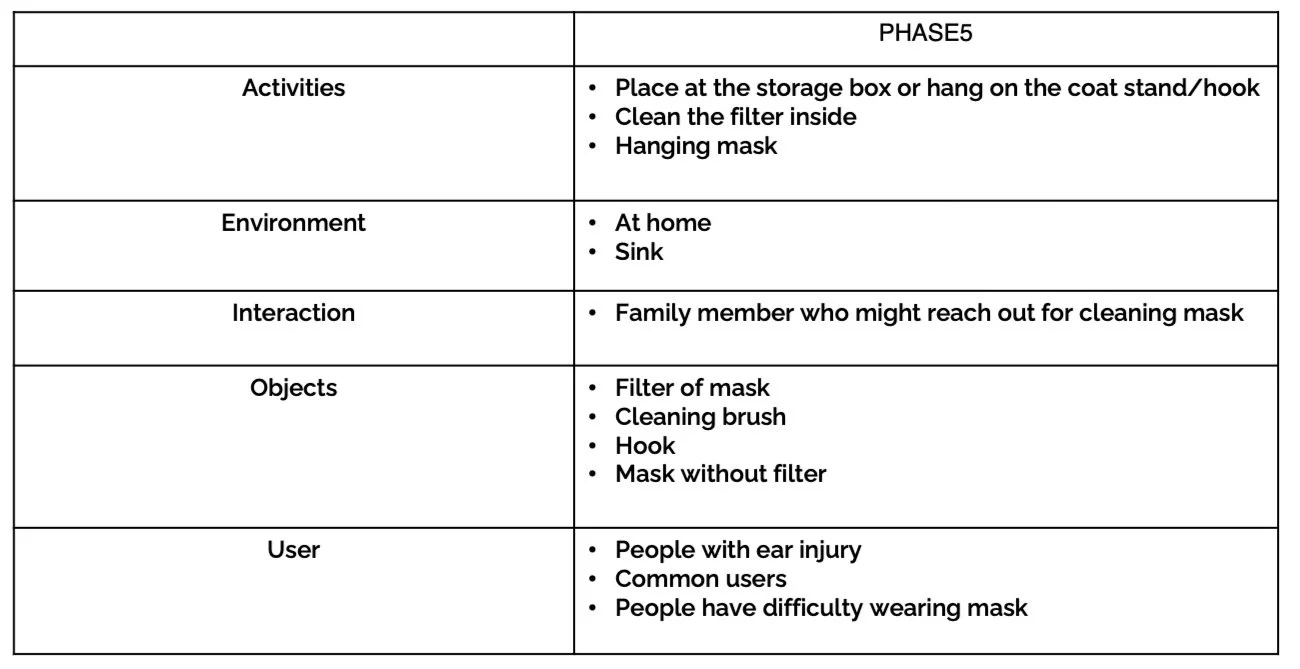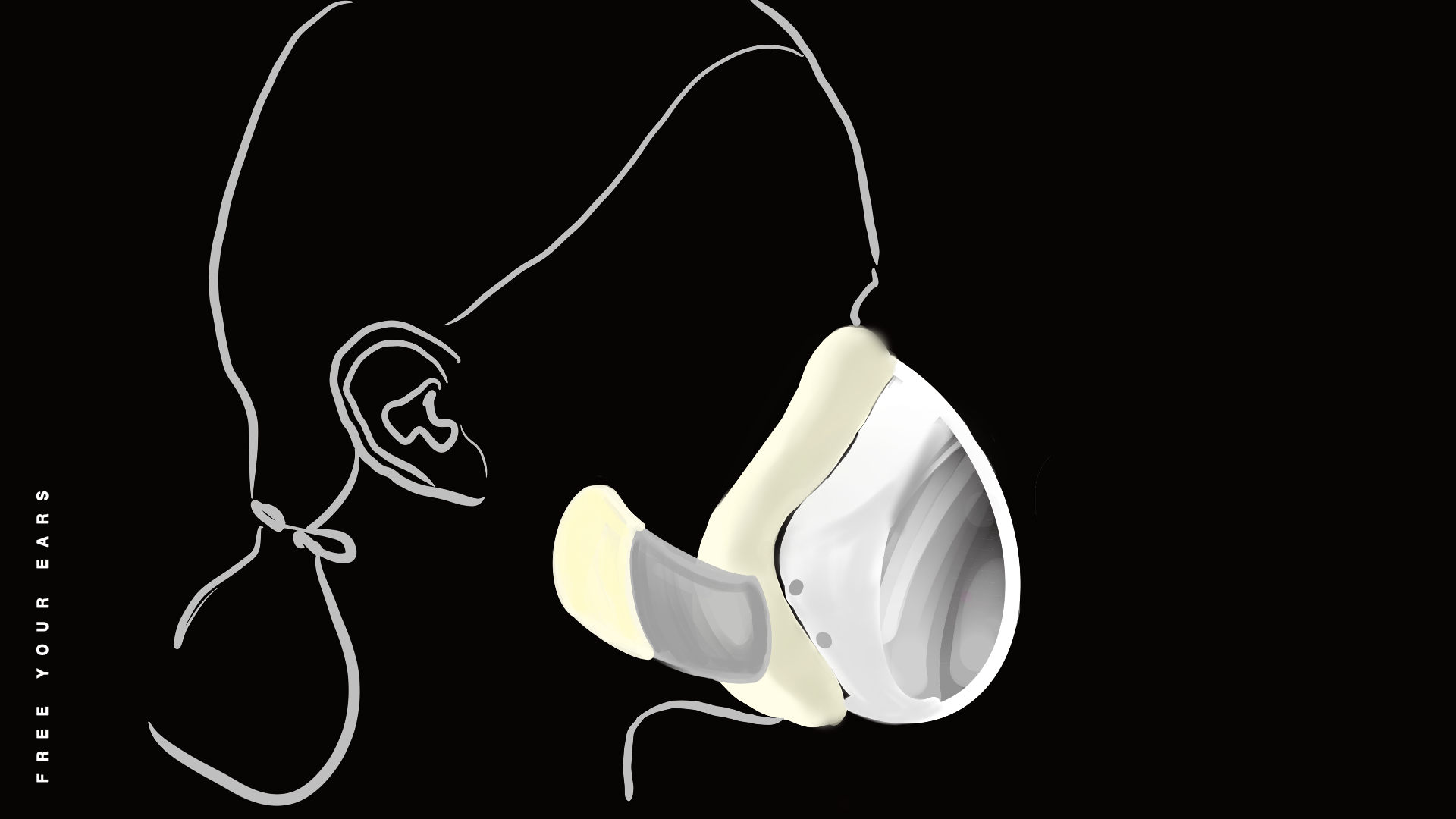
E-FREE MASK
Free your ears
No pressure of ear-hanging
Easy clean
Recyclable, human skin fitting materials Light-weighting
PERSONA
PERSONAL INFORMATION
Name: Mr.Wang (male)
Age:80
How often wear masks:
•3-4 times a week (wear it once go out)
Thought of existing masks :
•Hard to wearing mask for a long time due to the hearing-aid.
•Somehow feel uncomfortable, the ear-hanging are very likely to get stuck with the hearing-aid.
•Have to switch the mask every day with high-coast, disposable of masks.
Summary of existing issue of mask
•High-coast (Disposable mask)
•Mostly are ear-hanging type, that might lead to uncomfortable feel
•Facial mask tare too massive
DESIGN CONCEPT
1.Design Objectives
•Must: avoid contacting ears/ ear-free, using sustainable material
•Should: easy to carry, provide colour/size options, easy to produce/manufacture, easy to obtain .
•Could: suitable for various environments, universally used, wearable by all users, not only put on face, but various ways of wearing
2.Key qualities
•Reduce elements of ear-hanging
•Safety for all users
•Sustainable material
•universally wearable
•inclusive
4. Affordance
•wear over mouth and nose
•Reduce spread of virus
•Reduce uncomfortable feel while wearing masks
•Safe and soft material to provide better user experience.
3.End user/specific user
•People who’s ears have been injured
•People have difficulties wearing ear –hanging mask
Hooded mask
Pros:
•Cheap and light-weight
•Can be adjusted
•Low-cost
•No pressure on ears
•can modify existing masks (DIY)
Cons:
•Relatively easy to slip off
Multi-Purpose Face Shield
Pros:
•visible facial expressions
•No pressure on ears
•Easy-wearing experience
Cons:
•Still need mask to reduce spread of virus
EXISTING PRODUCT ANALYSIS
View existing products and analyze their advantages and disadvantages
Simple Ear Guard for Face Masks
Pros:
•Low-coast and light-weight
•Accessible
•Can be applied to most masks
•Simple and practical
•Reduce pressure on ears
Cons:
•Not applicable to all masks, the size cannot be adjusted
Have risk of slipping form the ear
HOW MIGHT WE..?
How might we design mask for people with ear injury in public settings in order to avoid contacting their ear to provide reduce the pressure on ears with Better experiences of wearing masks?
How might we reduce the amount of mask thrown at public space in order to prevent contaminating environments with the use of more sustainable material choice?
CHALLENGES: AVOIDING CONTACTING
OF EARS WHEN WEAR MASK
FREE YOUR EARS
PROFUCT IN USE
E-FREE MASK
RENDERING
TECHNICAL DRAWING
USER JOURNEY MAP
Phase 1: People with ear injury go out and wear mask for isolation
At phase one, user are looking for (e-free) mask at home or some public space, preparing for hangout, and then user are ready to wear mask.
Phase 2: Open up straps and fix face accordingly
At phase two, user open up the straps of mask, and accordingly fix on the face
Phase 3: Check it,avoid slipping off
At phase three, user adjust it accordingly, and then check it whether it are perfectly fixed on the face, avoiding slipping off.
Phase 4: Take off
At phase four, users take off the mask at relatively private space without people around where reducing the spread of virus. They begin with handling the each sides of straps and open up it, after taking off, the straps will automatically stay tight.
Phase 5: Storage, clean, and recycle
With more opportunity of E-FREE mask. It is a reusable mask with the changeable filter inside helps isolate the virus. The mask is a small size mask that can be placed in the storage box, as well as keep it ventilated, or hung on a hook or clip At the stage of recycling process, the material choice is silica gel, also covered with recyclable plastic, reducing the contamination of environment.

